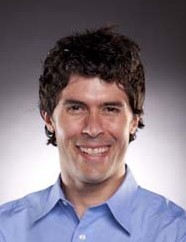Guest Blog by James Beckerman, MD
 Between college and medical school, I spent a year living in Spain.
Between college and medical school, I spent a year living in Spain.
It was one of those “discovery” years you now only dream of, a delicate balance of academics and culture, with an appropriate complement of red wine. It was Spain, you know.
In the midst of it all, I found myself with a lot of time on my hands, and spent much of it reading – reading about other people’s journeys and the paths they took during their own formative years. There were the classics like On the Road, Siddhartha, and even Catcher in the Rye – but what impacted me the most were Zen and the Art of Motorcycle Maintenance and its sequel Lila, both by Robert Pirsig.
Part novel, part philosophy text, and partly meandering, Zen and Lila take the reader on an intellectual journey through morality, purpose, and of course, motorcycles. One concept that has stuck with me after fifteen years is an idea stated in the conclusion of Lila: “Good is a verb.”
The first time you read that sentence, something doesn’t feel right. We typically think of “good” as an adjective to describe our core values. It may define who we are or who we’re not. It’s a group we want to belong to, and sometimes exclude our enemies from. But using “good” as a passive descriptor takes something out of the equation – choice. By thinking about goodness as a verb, as an action, our choices can change who we are and where we belong. Good is a process. Good is a journey.
So after spending a year trying to find myself, I ultimately found myself in medical school and specialty training, spending a lot of time with people who are often categorized by a different system – wellness and disease.
Doctors, patients, and insurers judge themselves and others by this simple metric all too frequently. And we all know that illness places us in a less desirable grouping, populated by symptoms, hospital stays, and medications. Having an illness shifts us away from the happy-go-lucky and pushes us toward the somber. Nobody wants to be ill. And nobody wants to be part of the group of people who experience illness.
But I’ve learned that this way of thinking about health and disease, or wellness and illness, is an oversimplification – because it implies that our health status defines who we are, and takes away the element of choice. Obviously, no one chooses to be sick. Genetics and environment conspire to create illness even in those with the best of intentions. But we can’t ignore the impact of the lifestyle choices we make every day on our health, whether positive or negative. Sure, there’s genetics and bad luck, but there’s also the saltshaker on the table. There’s the extra slice of chocolate cake on the plate. There’s the cigarette in your hand.
The choices my patients make and the ways in which they approach their own health have shown me that an eighty-year-old recovering from heart surgery can sometimes be my healthiest patient, whereas a twenty-four-old on no medications can be my sickest. Wellness is partially about choice. Wellness is sometimes about change.
Wellness is…a verb.
About the Author
James Beckerman, MD, FACC is the WebMD.com heart expert and MedHelp.org healthy living and weight loss expert, and sees patients in clinical practice in Portland, Oregon with Columbia Cardiology Associates and the Providence Heart and Vascular Institute. Dr. Beckerman graduated summa cum laude from Harvard College and earned his doctorate from Harvard Medical School. He completed his medical training at the Massachusetts General Hospital and at Stanford Hospital and Clinics. Beckerman has published numerous peer-reviewed scientific articles and book chapters and has served as a columnist for USA Today. He is excited to publish his novel approach to healthy living and obesity prevention, The Single Pound Solution, in spring of 2010 with Simon and Schuster.
